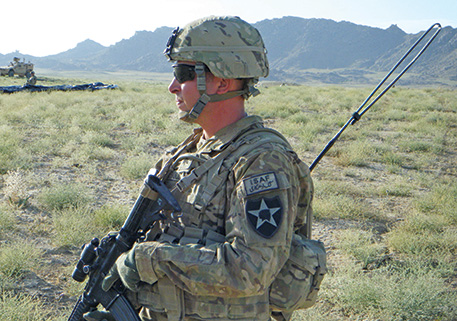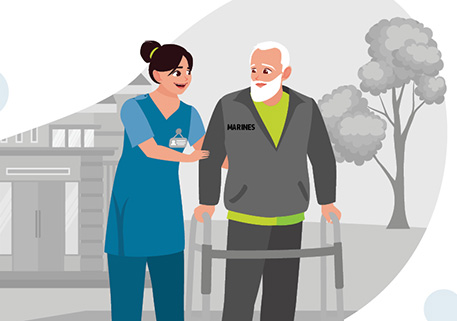DAV members convene at our annual national convention to decide on the organization’s legislative goals for the year. These goals help DAV’s legislative team in Washington, D.C., focus on issues most important to our members as they advocate for the laws and policies that affect the disabled veteran community.
In 2021, DAV members submitted a historically high number of resolutions at the convention, helping to shape this year’s advocacy agenda.
“These priority issues change and evolve from year to year, usually reflecting advances we’ve made legislatively,” said National Legislative Director Joy Ilem. “We are grateful to have an increasingly engaged group of members who help to identify these areas of concern.”
DAV’s 2022 Critical Policy Goals are as follows:
- Ensure Benefits, Health Care and Justice for Veterans of All Eras Exposed to Toxic Substances—Although there has been some notable progress for veterans who suffered illness due to toxic and environmental exposures, too many have yet to receive the benefits, health care and justice our nation owes to them.
- Enhance Benefits for Service-Disabled Veterans’ Survivors—The current value of Dependency and Indemnity Compensation (DIC) benefits is insufficient to provide meaningful support to survivors of severely disabled veterans, and some eligibility rules have limited the number of deserving recipients.
- Advance Equity in Health Services and Benefits for Women, Underserved and Minority Veteran Populations—The Department of Veterans Affairs must ensure women, minority and underserved veterans have access to timely, high-quality and specialized health care services to the same extent as their veteran peers, and it must provide a safe, welcoming and harassment-free environment at all its health care facilities.
- Improve VA Mental Health Services and Suicide Prevention Efforts to Reduce Veteran Suicide—Despite increased resources for VA mental health services and targeted efforts, rates of suicide among veterans have not significantly decreased. By improving lethal means safety efforts, enhancing care for veterans in crisis and increasing collaboration with community partners, the VA can help to reduce suicide for at-risk veterans and ensure all veterans have access to needed mental health services.
- Ensure Access to Long-Term Care for Aging Veterans and Those With Service-Connected Disabilities—The VA must have a comprehensive program of geriatric and extended care that includes a broad range of care options and supports, from home-based primary care services to long-term institutional care to assist a rapidly aging veteran population, particularly veterans with service-connected injuries who have lost the ability to function independently.
- Strengthen the VA’s Capacity to Deliver Timely, High-Quality Health Care to Veterans—To ensure the best health outcomes for veterans, particularly veterans with service-connected conditions who rely on the VA for all or most of their care, the VA must remain the primary provider and coordinator of care, which will require new investments to rebuild its health care infrastructure and modernize IT systems. As demonstrated during the COVID-19 pandemic, the VA also plays an essential federal role during national emergencies, not just for veterans but for all Americans.






